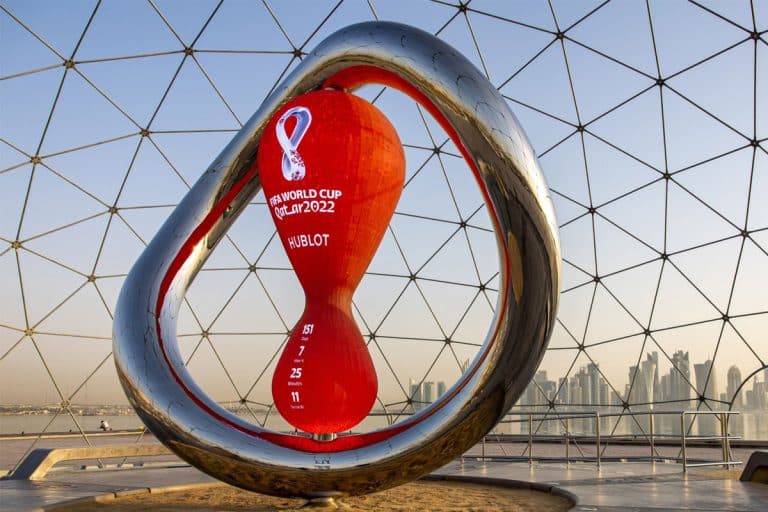The FIFA World Cup is one of the world’s most watched and followed sporting events, with fans from over 200 countries tuning in and an estimated 5 billion total viewers throughout the whole competition, up from 3.5 billion in 2018. It is a significant event for the host nation, because it is not just about football. The World Cup significantly impacts the hosting nations’ economy, tourism, and infrastructure.
Additionally, it has a distinct influence on global values and business interests., which I can speak personally about due to my philanthropic efforts with Football for Peace in the region.
The Middle East already heavily invests in sports and will grow by an estimated 8.7 percent in the next 3 to 5 years, hosting international golf tournaments in Abu Dhabi, tennis tournaments in Dubai, and Formula One races in Saudi Arabia, Bahrain, and Abu Dhabi.
We have witnessed through the media that the local economy in Doha itself has felt the immediate effects of the new infrastructure constructed for this major sporting event, with eight air-cooled, low-carbon World Cup stadiums being built from the ground up, with fan zones, training grounds, and other outdoor tourist attractions. All of this has been estimated to cost Qatar around $300 billion, a remarkable amount for a remarkable event.
The event, which has so far had a cumulative attendance of almost 2.5 million people (based on when I am writing this article), will help to speed up growth across a range of industries, including travel and tourism, hospitality, infrastructure, and assist Qatar in achieving its National Vision 2030. I believe that the Arab World, Asia, and the world at large should learn from Qatar’s hosting of the tournament by promoting inclusivity, sustainability, and global community.
The 2022 FIFA World Cup will provide a great legacy for Qatar’s reputation internationally, through technical innovation, and sustainability. From the competition, I think it’s clear to see that Qatar hopes to establish new benchmarks and standards in terms of sustainable development.
Qatar established the Gulf Organisation for Research and Development (GORD) in 2009, with its headquarters in the Qatar Science and Technology Park. The Global Sustainability Assessment System, which defined the criteria for the operational performance of structures and stadiums for the World Cup, was developed by GORD.
When compared to other buildings constructed in accordance with the American Society of Heating recommendations, we can see the method allowed Qatar’s newly constructed stadiums to achieve energy savings of 45 percent. As a result, it established a benchmark for energy efficiency for the GCC region, which should be commended by all of us.
Qatar has strived to promote technical innovation within its borders and abroad. In order to expand access to cultural offerings, simplify translation into other languages, and help visitors navigate the city with real-time information, the SC (Supreme Committee for Delivery and Legacy) established Challenge 22 in January 2015.

This initiative aimed to identify solutions and encourage innovation, which, in my opinion, they accomplished brilliantly. In order to promote Qatar’s transformation to a knowledge-based economy, Challenge 22 worked to strengthen local capability through the development of enterprises, knowledge, and infrastructure for innovation.
The legacy of the nation’s cutting-edge technology, transportation, and utility infrastructure will improve its competitiveness in the long term. According to projections, the event’s economic impact will be $20 billion in 2022, or 11 percent of GDP prior to the pandemic in 2019. Per the estimates, the 2022 FIFA World Cup added 1.5 million new jobs to the economy in industries including construction, real estate, and hospitality. Additionally, the nation’s economic diversification plan has achieved momentum.
However, the lasting impact of a sporting event of this significance goes far beyond obvious economic gains, and its legacy should take into account the qualitative aspect of these advantages.
A huge congratulations should be extended to the country of Qatar for such an incredible achievement all around.






